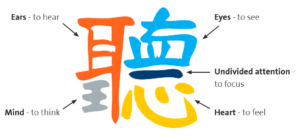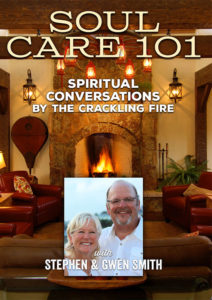 “At once, this same Spirit pushed Jesus out into the wild. For forty wilderness days and nights he was tested by Satan. Wild animals were his companions, and angels took care of him.”—Mark 1:12How is it that in one single verse, Mark explains the journey of the spiritual life? It’s fascinating to simply sit with this solitary verse recorded in Mark’s Gospel and to sense the movement, undertaking and activity that Jesus experienced. Friends, in this one, single verse, there is a great movement that needs to be understood. I say “movement” because the spiritual life is a journey from one movement or place in life to the next. We never stay static. We are invited to always to learning; always be growing and always being transformed.First, let’s recall the context of Mark’s powerful singular verse. This verse comes immediately after the wonderful story of Jesus' baptism and being told that Jesus was the “beloved of God.” That moment in the life of Jesus, and in the life of all of us who follow Jesus, is crucial and essential. We all need to hear those same words for ourselves. Each of us needs to know that we, too, are the Beloved of God. I have come to understand that,in this historical event in the life of Jesus—the entire trajectory of his life shifted. Nothing was the same for Jesus when he heard these words—and nothing for us can stay the same when we hear these same words for ourselves. Prior to this, Jesus made furniture. After this event, Jesus made people. He freed people caught up in their own web of religion and offered them freedom. He compelled people to leave their boats, their careers, their people groups and their tribes to enter a new phase—a new place and to have a new understanding of God in their lives. This was his mission. Through his teaching and his life, he offered a different way; a different truth and a different life. This is still true today.The Journey of Discovering Who We Really AreThat’s what happens when any of us hear our true identity from God about who we really are. God told Jesus who he was. Today, that same Voice tells us our true identity—that we, too, are the beloved of God. Until we know this for ourselves, we will live into the lies of life that try to convince of us three lies:
“At once, this same Spirit pushed Jesus out into the wild. For forty wilderness days and nights he was tested by Satan. Wild animals were his companions, and angels took care of him.”—Mark 1:12How is it that in one single verse, Mark explains the journey of the spiritual life? It’s fascinating to simply sit with this solitary verse recorded in Mark’s Gospel and to sense the movement, undertaking and activity that Jesus experienced. Friends, in this one, single verse, there is a great movement that needs to be understood. I say “movement” because the spiritual life is a journey from one movement or place in life to the next. We never stay static. We are invited to always to learning; always be growing and always being transformed.First, let’s recall the context of Mark’s powerful singular verse. This verse comes immediately after the wonderful story of Jesus' baptism and being told that Jesus was the “beloved of God.” That moment in the life of Jesus, and in the life of all of us who follow Jesus, is crucial and essential. We all need to hear those same words for ourselves. Each of us needs to know that we, too, are the Beloved of God. I have come to understand that,in this historical event in the life of Jesus—the entire trajectory of his life shifted. Nothing was the same for Jesus when he heard these words—and nothing for us can stay the same when we hear these same words for ourselves. Prior to this, Jesus made furniture. After this event, Jesus made people. He freed people caught up in their own web of religion and offered them freedom. He compelled people to leave their boats, their careers, their people groups and their tribes to enter a new phase—a new place and to have a new understanding of God in their lives. This was his mission. Through his teaching and his life, he offered a different way; a different truth and a different life. This is still true today.The Journey of Discovering Who We Really AreThat’s what happens when any of us hear our true identity from God about who we really are. God told Jesus who he was. Today, that same Voice tells us our true identity—that we, too, are the beloved of God. Until we know this for ourselves, we will live into the lies of life that try to convince of us three lies:
- I am what I do.
- I am what I have.
- I am what other people think of me.
These three lies form a web of sorts, that catches and snares every person on the spiritual journey of life. By attaching our hearts to just one of those lies means that we will discover the sticky residue that each of those lies manifest in the human heart. Those lies accumulate untruth within us. These lies do great harm to our hearts. We will lean into our doing. We will acquire too much stuff and positions to prove we are really somebody. We will be co-dependent about our reasons of living is for what you will think of me.God knows that there must be a powerful force to help us get free from such lies. These lies have wedged their way into me. They are in my story and I believe they are in your story as well. This web seems to be able to catch us off guard and in times when we thought we were “done” or “through” with that lesson or insight. For some of us, we keep on returning to re-learn the deeper truths of these same, timeless truths.Rather than beat ourselves up that we feel remedial or stupid or forever broken, we can also learn to be gentle with ourselves. Being gentle in how we learn lessons in the spiritual life is key. There's been too much harshness imported in our teaching; too many loud voices screaming at us; too much information and too little love.What’s interesting here, is to note that the three temptations that Jesus faced in the wilderness are actually, the three temptations that Satan confronted him with. These temptations were about his identity, power and to do spectacular things in life that would hinge to his mission. But there’s more to this story.Does God push, force and drive us?Mark’s verse here tells us that the same Spirit that rested on the physical body of Jesus was now not resting but actually: “pushing,” “forcing” and “drove” Jesus out into the wilderness. Read the verse again before you move on. We move too quickly sometimes in reading the Scriptures that we miss important insights that could actually help, free or heal us. As you read the verse again note that these are the literal translations in the ESV, Message and Amplified versions of this verse. Jesus was pushed. He was forced. He was driven.Jesus was pushed. Jesus was forced and Jesus was driven by God’s Spirit. We may feel initially uneasy about the descriptor words about the power of the Spirit that Mark is offering us. We may prefer a softer, more gentle—way of the Spirit. But Mark uses real, tangible and powerful words to show us how God operates. When I look at my own story; listen to hundreds of stories of modern day followers and read the ancient accounts of men and women, who through the centuries gave a written witness to their own spiritual journey here’s what I’ve discovered.There are times in our lives when we simply feel compelled, duty-bound, coerced, pressed or even forced to do something. This “feeling” that I want to attempt to describe is a sort of inner mandate that we simply “have to move,” “have to head in a whole other direction, have to step out in faith that somehow we just “know” what we have to do. I “ought” to do something and I know it and I cannot NOT do this thing that I feel so ought-driven to do.We have to simply go. We sense we have to leave. We must make a break.My Own Journey of Being PushedI have experienced several of these kinds of defining moments in my life. Allow me to share five of these times of feeling what Jesus must have felt:
- When I first met Gwen at a party, I just “knew” that I would marry her. I did marry her. I felt compelled. I felt driven to pursue her with wild abandon. I am so glad I followed that inner sense of “oughtness.”
- When I came to the realization that I was not a card-carry denominational man. That I had never been comfortable with my roots anchored in a particular way or system that defined me; shaped me and molded my thinking that was truly not me. I left the denomination. There was such a clear, distinct sense of “oughtness” rising up ---that I discovered I could NOT –not do what this sense of being driven to do was telling me. I remember feeling that really, I had no choice in this. I would live a lie unless I left. There are many implications to think through in regard to this in today’s world.
- When I was preaching a sermon in the church that I led, I had a deep sense of feeling “pushed.” It was in the fourth Sunday worship service in a very large church and I had a sort of private, quick epiphany or panic attack perhaps which rose up with me and informed me saying “This is not you. This is not where you belong at all. I want you to get out.” I got out. I felt as if I was living in a smoke filled room and I could not breathe. I could not find my breath. I felt trapped. I felt like I was imploding or would implode if I did not “get out.” When I left, I began to breathe again and I came alive again—but in a different way than before. I felt really alive—like a sort of new birth.
- When my first grandchild was born and the subsequent birth of all of my grands, I sensed this same urging rising up with me. “Seize this role, Steve. Rise up and be the spiritual influence this child needs. This is your role. These people are your true legacy.” I was flooded about my real role in life and my real legacy that would define me as a man. IT was powerful and life-altering. Much of my “repositioning” today is a result of the tectonic plates of my inner world shifting. I suspect many of you can identity in some way, shape or form.
- I am having this same inner "pushing" right now as Gwen and I attempt to "reposition" our life and calling. We agree that we simply "must" do this for reasons we alone know and a deeper sense that this is right for us. We are not being pushed away or out. It is an inner sense that we are recognizing as an invitation--not a commandment. We could ignore or suppress this. But at this stage of our lives, we feel a sense of "oughtness." We ought to do this and walk into a new chapter waiting on us.. a chapter off the 8-lane freeway of a busy ministry and to live the life we speak about, write about and want to live.
As you read my own accounts here, though brief and succinct, I wonder what may rise up with in you about having a similar sense of being “pushed” out to a whole new terrain—a brand new landscape that had your name on it and you did what we all have to do when this comes, we get up and enter this new place---that we don’t even know the real name of yet.The Wilderness We All Must Enter in LifeThis brings me to Mark’s words again of this place where Jesus was pushed to go. It’s called—wilderness. I once heard Eugene Peterson, Dallas Willard and Richard Foster state in unison and with one voice that “wilderness” is the predominate metaphor of the spiritual life. I remember a visceral reaction when what these three spiritual magnates were really telling me. I didn't like this lesson and what's more I resented them saying such a thing. But in time, I have come to agree. I believe what they shared is really true. I, along with each one of you, would need to embrace the idea and concept of wilderness to understand the spiritual journey. We would need to go into wilderness and let wilderness do what wilderness does to the soul.In wilderness, we are stripped down. We have to face our illusions that we may have long held to be true and right. We have to let the long days and lonely nights of wilderness begin to de-construct belief systems, rigid box like thinking and false narratives that we have clung to—thinking them to be really true—only to have our boxes fall apart. Things fall apart in the wilderness. Perhaps this is their God intended purpose.. We let go of things, hard-held beliefs and even convictions handed down to us by parents, political parties and denominations. We are stripped. We have to come to terms with a whole other reality that we discover and are, in fact, discovered by in wilderness times.Ask someone what they learned after their spouse died and a wilderness happened? Ask a corporate woman what they experienced after being fired from a highly esteemed job—a wilderness. Ask anyone who has failed at something they really wanted to accomplish in life. Ask anyone who has divorced a spouse having clung for so long that divorce would never be an option. Ask anyone who has lost a child. Ask anyone who as trekked into a wilderness uninvited, unwelcomed and unwanted. Ask anyone who has transitioned to another country and had to endure that long, lonely season of having no friend, no family; no church, no community and who has left all the food, people and place that comfort gives. We don't have to look far around or far within to find that wilderness is actually everywhere. As Paul says, we are always carrying the death of Jesus within us--even while we are living. Strange isn't it? Not really. Let me explain a bit more.Jesus was driven into a wilderness. And from this verse if we say we want to be followers of Jesus, we must embrace our own sense of being driven into wilderness times where we give up security, all that we know to be true and enter a deep, dark time of testing. It is the way of God for such times. Jesus could avoid it and never can we. We can’t go around a wilderness. WE can’t go over a wilderness. We can’t go under a wilderness. We all, just like Jesus, have to go through a wilderness.The movement of the spiritual life is moving and living; then moving into a wilderness--then emerging into a sort of "promised land". This is the classical understanding of the spiritual life and it is really hinted at, if not explained here by Mark.Facing the Wild Animals WithinMark reminds us that the first things to show up in Jesus’ wilderness times were the wild animals. I recently read a study showing that in 1st century Israel there really were no really “wild” animals. There were no loose and wild lions seeking to devour people. There were no bears. So what kind of “wild”animals was Mark referring to that confronted Jesus? A wild dog? Maybe. A herd of wild boars? Maybe. I’m not sure actually.But what I know is this. The wild animals that always seem to assault me are the inner ones. Voices of shame. Lamenting voices speaking about my failures. Wild voices that are self-condemning and always self-critiquing. They are always trying to literally pull me apart from the inside. It is these voices that always seem to show up for the hundreds of people I listen to when they are alone, hungry, afraid and tired from the journey of life. These wild voices seem to fall into one of three categories jeering us about what we have done; what we really want in life; and what will really satisfy us in life. Right here, in one of these three wild voices, we will be confronted with what we truly believe and about what is really true.It’s in these dark wilderness times that we make inner resolves about how we will stand in the face of such wild voices. This is what Jesus did. He resolved in each jeering taunt the truth that he knew and the truth that would compel him forward and out of the wilderness.In the contemplative life, we are offered a beautiful lesson. Those who want to live a life marked by inner peace and a sense of shalom are not immediately granted the fruits. It takes time---and I read this week a year of learning to transition is not too long to think about when we are leaving one place on our journey and entering a new one. I can tell you that in my own journey and understanding, I have had to embrace the fact that my journey is taking a whole lot longer than I thought and even wanted. I must simply walk through some wildernesses to understand some of the fruit of the life I am hoping to cultivate. It takes time.Finally, Mark reminds us that after—and only after, he had gone into the wilderness and faced the wild beasts and even Satan himself—that Jesus would find comfort. Comfort comes--that is the good news for us. But it is in the wilderness that we find the comfort we actually want.Friends, these are important words that can encourage us right now in whatever desert we are living in or through. There is comfort. Mark tells us that the “angels attended him.” Other translations tell us that Jesus was cared for. Jesus was "ministered to"…that the angels "continually ministered to Jesus." Think about this. Comfort came and does come to us as well.As we move through our own wilderness times, there comes a sense that we are not alone; that we are not forsaken; that we are not in this by ourselves. We get to experience—and yes, the word I’m saying here is “experience” the loving comfort of the love of God. Perhaps this is what Paul had in mind when he says he literally “prayed” that we would experience a sense deep within us of God’s love. This kind of comfort, Paul explains “surpasses our understanding” (Ephesians 3:19). This is the kind of individual and personal ministry that God is about. This kind of beautiful, specific and unique comfort is what really defines the heart of God. It is the kind of love that we, my dear brothers and sisters are invited to taste as the beloved children of God. This is the kind of love and experience that actually defines the kind of God we love and serve today.At Potter’s Inn, Gwen and I have walked with many people who come to us in their defined time of wilderness. They are tired, worn out and beaten up by many things in life—including religion. But what we are witnesses to, is this: As they walk through their wilderness times---wilderness of their own vocational journey; wilderness times of feeling like mis-fits in church; wilderness times of being so worn down that they feel ‘dead on arrival’—that comfort comes. Peace is fostered. Inner contentment is realized. It’s uncanny and it’s true.I hope that this may encourage you in what ever circumstance you find yourselves in and that when you feel that are you are being ushered out and into a wilderness that you may remember Mark’s powerful, singular verse and may this one verse bring great hope to us all in a time of political, relational, ecclesiastical, vocational, or physical wilderness that we will have to walk through.If you’re in a wilderness defined by disease or diagnosis: take heed.If you are in a vocational wilderness and are living in the land of in-between, take heed.If you are a liminal space—a space of wilderness defined by geography, emotion or relationship, or even a spiritual wilderness-- take heed.There is movement. Trust the movement. Trust that comfort is on His way!










